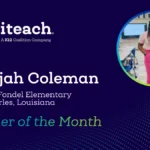What is the Real Power of Education?
I’m on the board of a nonprofit in Denton called Serve Denton and one of our biggest challenges is making people aware of a specific need. We find that once we make people aware of the need and how they can help, that many people are willing to step up and help. We use phrases like, “We need to educate people about…”
While education can add dollars to your bank account, the real power of education is not just in the classroom – but it often starts there. By learning about the history of our country, we can better appreciate the lives we have been afforded. When we learn about economics, we can plan for our future with a better understanding of supply and demand. But education even goes deeper than that. When we never stop learning, we can unlearn the things we were previously taught incorrectly and continue to adapt and grow as new data is entered into the equation. An example of that would be people who once believe the earth was flat, this made sense until technology and tools advanced and people realized that the earth was indeed round.
Continuous Learning and Brain Function
Have you ever heard of Neuroplasticity? (Neuroplasticity is the capacity of brain cells to change in response to intrinsic and extrinsic factors, can have negative or positive influence at any age across the entire lifespan.) This is the idea that the brain can continue to grow and learn new things – even though scientists previously believed that the brain, once it was fully formed, could no longer unlearn specific ingrained ways of doing things. But new research shows that the brains is “plastic” and can continue to be molded to learn and adapt.
According to the US National Library of Medicine National Library of Health, “Japanese individuals 65 and older enjoyed physical exercise with musical accompaniment for 1 h once a week completing 40 h in 1 year (Satoh et al., 2014). With each session the exercise intensity was gradually increased. Half of the group heard the music played in harmony with the exercise. The other half only heard percussion that kept the beat while the people read the lyrics without music while exercising. While both groups may have appreciated gains in psychomotor speed, only the music group had significant improvement in visuospatial function. These scientists believe that cognitive functioning in elders can be enhanced when music is combined with physical exercise.”
When we look at the science behind Neuroplasticity, exciting things can become possible. In the book “The Brain that Changes Itself” there is a story of a woman who is given medication during childbirth that interferes with her ability balance. For years she walks around with vertigo until a scientist develops a process to help her brain re-learn new ways to be balanced. The Ted Talk below dives a little bit deeper into this science of Neuroplasticity and how our brains are in a constant state of change.
Can Rats Learn to Drive?
NOTE FROM TED: Please do not look to this talk for medical advice. While some viewers might find advice provided in this talk to be helpful as a complementary approach, this research presented in this talk is an emerging field of research.
Dr. Lambert’s award-winning work and research at the University of Richmond focuses on experience-based neuroplasticity using rodent, raccoon and non-human primate models. She has written two neuroscience textbooks and three mainstream books including the most recent, Well-Grounded: The neurobiology of rational decisions.
Could our more sedentary way of life be impacting our brains negatively? Could repetitive movement be the answer to emotional health? Can Rats be taught to drive?
Take a moment to watch this TED talk to learn more about how movement, specifically the movement with our hands, impacts our brains and our mental health. This fascinating and funny talk will motivate you to keep learning and to start doing more with your hands to improve your cognitive function.
Education Adds Up
When we look at income data from the U.S. Bureau of Labor Statistics we can see that in 2017 that if you had a Bachelor’s Degree you can earn on average $1000 more per month than those who don’t have a degree. Push that to a Master’s and you are bringing home approximately double a non-degreed individual which adds up to roughly $2800 more per month!
When you look at the numbers, job security also increases with education. Unemployment rates go down significantly for people with professional and doctoral degrees.
Education Changes the World We Live In
In conclusion, when we look at one of the most powerful ways that we can change our lives and the lives of others, education is at the top of the list. We can educate ourselves and improve our health, our finances, our children and the world we live in. We are constantly evolving and hopefully we are allowing the past to inform us, not define us. We are moving forward with an open mind and an open heart that can change the world we live in for generations to come.
Become a Teacher. Empower Others.
If you are passionate about impacting the world around you there are few places where you can influence the future as much as a teacher. Teachers have the ability to build students up and set them on a positive course that can have a ripple effect for future generations.
If you are interested in becoming a teacher, check out our online teacher certification process and you could be teaching in a matter of weeks.






